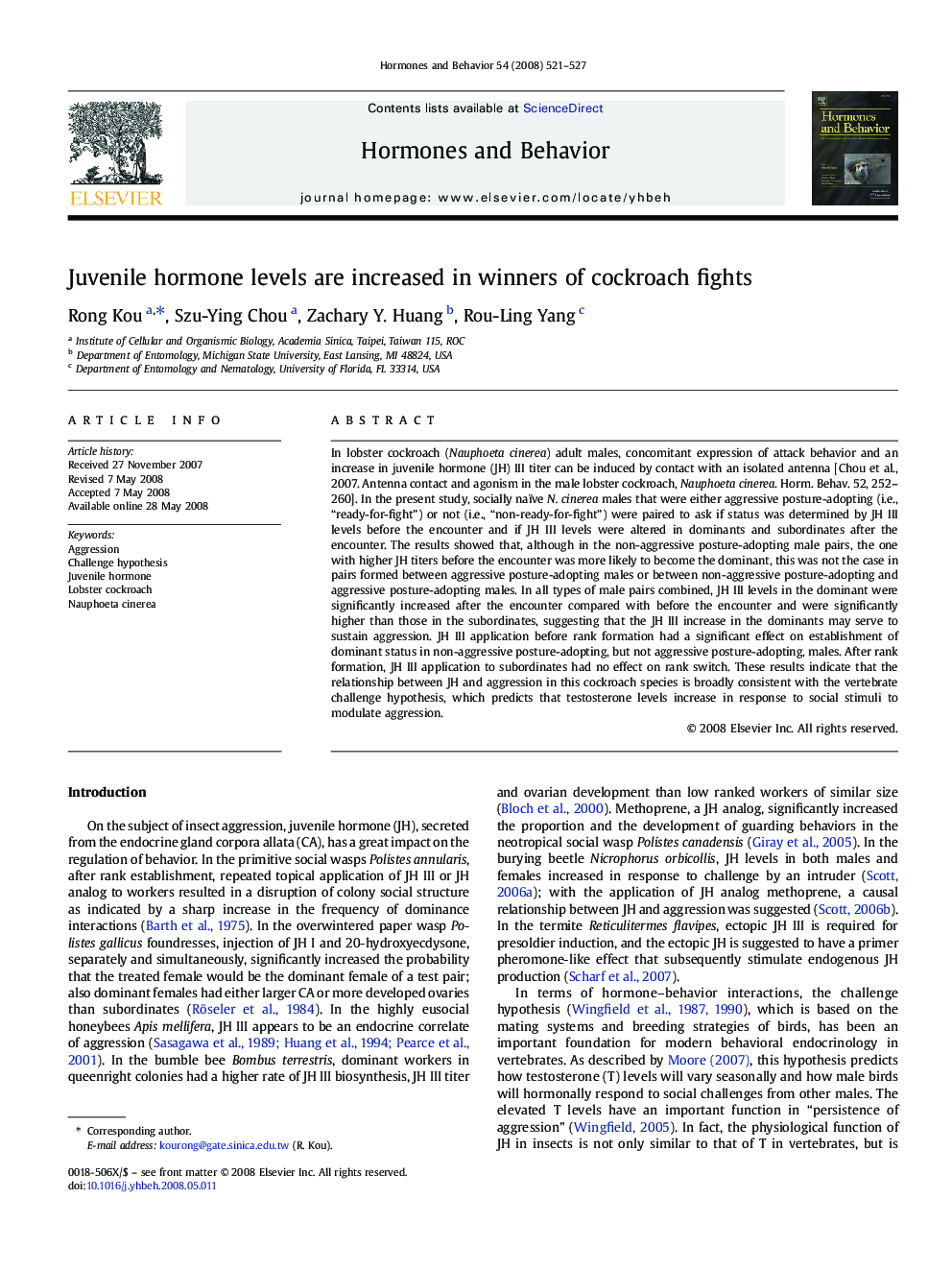| کد مقاله | کد نشریه | سال انتشار | مقاله انگلیسی | نسخه تمام متن |
|---|---|---|---|---|
| 323750 | 540771 | 2008 | 7 صفحه PDF | دانلود رایگان |

In lobster cockroach (Nauphoeta cinerea) adult males, concomitant expression of attack behavior and an increase in juvenile hormone (JH) III titer can be induced by contact with an isolated antenna [Chou et al., 2007. Antenna contact and agonism in the male lobster cockroach, Nauphoeta cinerea. Horm. Behav. 52, 252–260]. In the present study, socially naïve N. cinerea males that were either aggressive posture-adopting (i.e., “ready-for-fight”) or not (i.e., “non-ready-for-fight”) were paired to ask if status was determined by JH III levels before the encounter and if JH III levels were altered in dominants and subordinates after the encounter. The results showed that, although in the non-aggressive posture-adopting male pairs, the one with higher JH titers before the encounter was more likely to become the dominant, this was not the case in pairs formed between aggressive posture-adopting males or between non-aggressive posture-adopting and aggressive posture-adopting males. In all types of male pairs combined, JH III levels in the dominant were significantly increased after the encounter compared with before the encounter and were significantly higher than those in the subordinates, suggesting that the JH III increase in the dominants may serve to sustain aggression. JH III application before rank formation had a significant effect on establishment of dominant status in non-aggressive posture-adopting, but not aggressive posture-adopting, males. After rank formation, JH III application to subordinates had no effect on rank switch. These results indicate that the relationship between JH and aggression in this cockroach species is broadly consistent with the vertebrate challenge hypothesis, which predicts that testosterone levels increase in response to social stimuli to modulate aggression.
Journal: Hormones and Behavior - Volume 54, Issue 4, September 2008, Pages 521–527